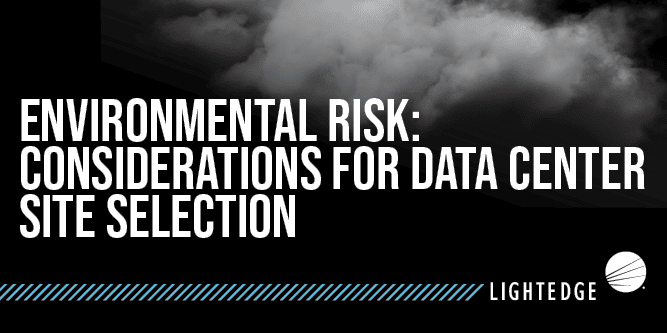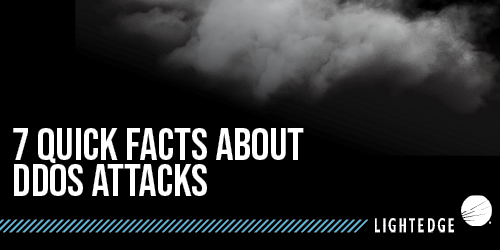Microsoft Hikes the Price for Taking Its On-Premises Licenses to AWS and Google
August 29, 2019

Lightedge
Author

Microsoft recently announced new licensing changes that target its competing public cloud vendors that run Microsoft software. Starting October 1st, 2019, Microsoft software will become significantly more expensive to run on non-Azure cloud like Amazon Web Services (AWS), Google, and Alibaba.
Microsoft, the world’s second largest public cloud provider, positioned this price increase as simply a matter of updating its licensing scheme to reflect a changing market. While that may be the case, the price change gives a clear cost disadvantage to running Microsoft software on AWS or Google.
So, what does this mean for its customers? Well, it might be time to consider a different hosted solution like a private cloud or hybrid option. We will uncover the changes that are coming with Microsoft’s new tax and dedicated host service on Azure, as well as, options for migration.
Microsoft Increases Licensing Costs for non-Azure Cloud Vendors
The Register summarized the license changes, saying that “many software deployments that are currently allowed will no longer be permitted on dedicated cloud services from the listed providers. Microsoft is making it harder or in some cases impossible to bring your own licenses, forcing customers either to rent the software via SPLA (Service Provider License Agreement), or to purchase licenses with software assurance, an annual service charge.”
Traditionally, if customers move their workloads to a dedicated host in the public cloud, they have been able to use the same on-premises license without being charged additional fees. Under the new rules, starting in October, the bigger public cloud players will no longer be treated like traditional outsources as far as on-premises licenses are concerned.
If enterprises want to run on-premises Microsoft software on a dedicated hosted cloud service by AWS, Azure, Alibaba Cloud, or Google Cloud Platform (GCP), they will have to pay additional fees on top of the standard license cost. If your business is using a different cloud provider, such as Lightedge, you will not experience these changes or price hikes.
Rob Enslin, Google Cloud President, took to Twitter to say, “Shelf-ware. Complex pricing. And now vendor lock-in. Microsoft is taking its greatest hits from the ’90s to the cloud.”
The announcement also prompted negative comments from AWS CTO Werner Vogels, who said Microsoft was prompting a “bait and switch” and “restricting freedom of choice.” Responses to Vogels comment pointed out a few of AWS’s own business practices do not encourage freedom of choice either. Those practices include charging larger networking fees for transferring data out of AWS and routinely turning open source technologies into paid cloud services, diminishing attempts by smaller cloud providers to build businesses around those technologies.
What Does the New Licensing Rules and Price Increases Mean for You?
Microsoft’s new licensing rules apply to all of its on-premises software being deployed on dedicated public cloud hosts sold by providers mentioned above. Your company can continue using existing licenses in those clouds without being charged beyond October 1st. Unfortunately, your enterprise will have to pay a significant amount of money if you ever add any workloads or upgrade to new releases. For a thriving business, you will no doubt have pay more.
Wes Miller, a Windows licensing analyst at Directions on Microsoft, described the new license terms as: “Really bad news for Amazon. Kind of bad news for Google… really bad news for Amazon Workspaces in particular.”
Microsoft is attempting to boost the usage of Azure by making it more expensive and difficult to use other public cloud providers listed above. Unfortunately, they are taking some risks by doing so. Upping the cost of running Microsoft software on other public clouds is not only a hassle for current customers, but it also gives them more incentive to look for non-Microsoft solutions.
Thankfully there are other options such as a private cloud solution or a hybrid cloud that can help businesses avoid this price hike. Many businesses have begun migrating applications and data from the public cloud at a staggering rate in favor of private cloud environments, reports a survey by research firm IDC.
Public Cloud Repatriation
An entire 80 percent of the 400 IT decision-makers who participated in IDC’s 2018 Cloud and AI Adoption Survey said their organization has migrated either applications or data that were primarily part of a public cloud environment to an on-premises or private cloud solution in the last year.
In addition, respondents also said they plan to move 50 percent of their public cloud installed applications to a private cloud over the next two years.
The top reason for businesses moving away from public cloud in IDC’s 2018 Cloud and AI Adoption Survey, was due to security. The other top reasons respondents cited for moving off public cloud were performance, cost, and control, according to the survey.
With Microsoft’s price increase, cost may be moving to the top of the list for reasons for public cloud repatriation. In an interview with CRN this year, Dell founder and CEO Michael Dell said on-premises solutions are more cost-effective than public cloud for the majority of workloads.
If your organization currently uses public cloud solutions but are no longer receiving the benefits that were once promised, it may be time to make a change. IBM was ahead of the crowd and began promoting their hybrid cloud options as cloud repatriation continues to take hold. But if you are looking for a hybrid or private cloud environment, when does it make sense to make the change?
Why Move to Private Cloud?
There has been emphasis and excitement surrounding the growth of public clouds, overshadowing the strong growth and development of private cloud options.
The goal for any type of cloud environment is consistent visibility, management, policy, and threat intelligence across all functions, from a physical data center to a public cloud, and every variant in between.
A Dedicated Private Cloud services offers physically discrete and highly available compute, storage and network resources uniquely configured to your unique requirements. Your organization retains full control of your servers while gaining the flexibility of virtualization, ideal for mission-critical applications and compliance standards.
Private cloud environments provide IT administrators with capabilities, such as improved resource control and flexibility, which go beyond traditional virtual environments. Generally, organizations that adopt a private cloud are doing so to obtain the control and flexibility that private cloud architecture provides. The private cloud enables organizations to design and deploy a cloud environment based on their specific needs.
Jeff Borek, worldwide program director for cloud computing at IBM, provided some insight into why companies are selecting private cloud. “The pro-private camp is quick to remind clients that enabling private cloud capabilities—either on-site or in a private-hosted environment—provides the highest levels of management visibility, control, security, privacy, and physical data proximity. The peace of mind knowing exactly where your key business and client data resides at all times.”
Many public cloud users have misconceptions about data protection and security in the public cloud. They believe that these larger public cloud providers will provide data protection services automatically. When in reality, the customer must take the time to architect the right security and data protection solution on their own or expect to be at high risk for a security breach.
Hybrid Cloud Options
In addition to high cost and lack of security, public cloud has created concerns over lack of control and privacy. This has led companies to believe that going fully public was not the best route for their IT infrastructure. As a result, some companies want to maximize the benefits of both public and private cloud environments.
Hybrid cloud deployments would be a perfect solution for these companies. Versatile and responsive, hybrid cloud options are becoming a popular service for enterprises looking to adopt creative solutions for their IT computing needs.
Hybrid cloud mixes and matches the best elements of public and private clouds. For example, your organization’s development and test environments can “live” in a public load using test data, so you are paying for the environments only when you need them. Your production environment could run on your private cloud, where you can guarantee compliance and conformity with all of your various regulatory bodies and edicts.
What to Consider When Migrating Workloads
Conduct a thorough inventory of your applications and hardware. Not all applications lend themselves to running in a virtualized environment. In some instances, it may make sense to replace legacy applications with newer SaaS based offerings. In others, it may be more advisable (that is simpler, faster, and less costly) to maintain those legacy applications on-premises but simplify mobile access by developing modern systems of engagement atop them.
There are five key questions that every business should answer to minimize risk and maximize benefits in a cloud migration:
- How will migrating to the cloud affect our applications and our business?
- Is it critical that all of our data must migrate into the private cloud, or should we take advantage of a hybrid cloud option?
- What are we doing to test cloud deployments differently than with traditional two- or three-tier applications and associated testing methodologies?
- How will our deployment and management strategies change with a new cloud solution?
- Now that we have migrated away from the public cloud, do we still need to monitor things, or are we relying on a trusted vendor partner to handle that?
Will your Organization Experience the Price Increase on October 1st?
If your organization is caught in the middle of the major public cloud player’s licensing price increases, and lack of flexibility, it might be time to look for a different solution. From a dedicated physical infrastructure to a virtual delivery model, Lightedge has the compliant cloud and hosting solution for your organization. Retain the level of control you want, and the amount of data isolation you require.
Lightedge’s private cloud offerings include:
- Virtual Private Cloud Powered by VMware: Lightedge Virtual Private Cloud takes advantage of the low-cost model of multi-tenant infrastructure and virtualization, while maintaining business-critical performance and security in an ISO 20000-1 certified, ITIL best-practice managed environment.
- Dedicated Private Cloud Powered by VMware: Get the control, performance and security of dedicated infrastructure with all of the advantages of the cloud using our Dedicated Private Cloud.
- Bare Metal Cloud: Lightedge Bare Metal Cloud provides physically discrete, high performance, dedicated servers, storage and network uniquely configured for each customer.
From simply ordering-up capacity in fully managed environments to private clouds that are a customized configuration of infrastructure into any layer of the stack, Lightedge’s world-class facilities built to Tier III standards and talented engineers are ready to accommodate your business’ requirements.
Want to learn more about Lightedge’s private cloud hosting? Contact one of our cloud experts to get started or to schedule your private tour of any of our seven data centers. We have security, compliance and cloud experts standing by to answer any of your questions and to show you how our private environments work, so you can benefit from it yourself.
What to learn more about cloud deployment? Download any of our free resources including, Guide to Assessing your Move to the Cloud, How to Deploy a Secure Compliant Cloud for Healthcare, and Redefining you Network Strategy.
Related Posts:
- Seven Ways Digital Leaders Can Tackle Cloud Modernization
- IBM Takes Hold Of Hybrid Computing
- What Is Cloud Repatriation And When Does It Make Sense?
- What is Bare Metal Cloud?
- PCI DSS Cloud Compliance: Your Guide to a Smooth Cloud Migration
- Network Security Is the Cornerstone in your Security Infrastructure
- What Every Business Needs to Know about Dedicated Private Cloud
- Why Virtual Private Cloud Will Make You Reconsider Your Cloud Infrastructure
- The Forecast for 2019 Cloud Computing: 5 Predictions to Start Off the New Year
- A Look Ahead at 2019: 6 Predictions for Lightedge & Our Industry
- 5 Ways to Prevent Cloud Outages
- Picking The Right Types of Cloud Services For Your Business
- Cloud Migration Strategy: 3 Tactics and Other Best Practices to Get You Started
- Moving to the Cloud from Traditional IT: Why and How


